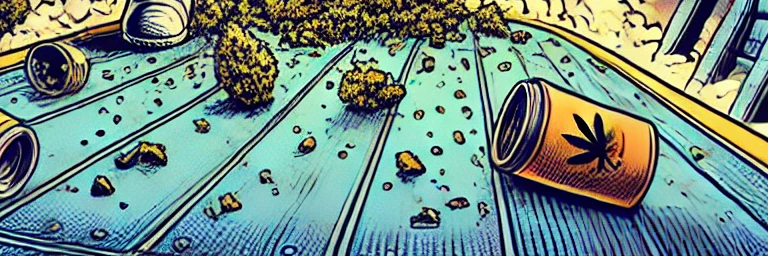[Missouri] Hemp Wars: A Legal Battle Over THC Regulation
RyLee Harrison on Jan 11th 2025
Missouri is the latest battleground in the fight over hemp-derived THC, and the stakes couldn’t be higher. Governor Mike Parson’s sweeping executive order to ban intoxicating hemp products has thrown the state’s hemp industry into chaos, sparking lawsuits, regulatory confusion, and accusations of government overreach.

The Ban That Lit the Fuse
On August 1, 2024, Gov. Parson signed Executive Order 24-10, effectively banning all intoxicating hemp edibles and beverages. His rationale? Protecting children from Delta-8 THC products marketed as candy and addressing the lack of labeling and testing requirements.
But Parson’s order didn’t just target misleading products—it took aim at the entire category of hemp-derived THC. Overnight, Missouri’s hemp businesses faced the prospect of financial ruin, with products pulled from shelves and manufacturing halted.
The Lawsuit That Followed
Enter the Missouri Hemp Trade Association. The industry group filed a lawsuit in Cole County Circuit Court, arguing that the ban overstepped its bounds. Their case centers on a specific Missouri law protecting industrial hemp: a product can’t be deemed “adulterated” simply because it contains hemp or hemp-derived cannabinoids.
Chuck Hatfield, the association’s attorney, called the ban illegal. “What the state is doing violates its own laws,” he said. “The hemp industry followed the rules, and now they’re being punished for it.”

The Regulatory Loophole
The crux of the state’s enforcement strategy lies in the Missouri Food Code. Parson’s order directs the Department of Health and Senior Services (DHSS) to label hemp-derived THC products as “adulterated” or “misbranded.” These terms give regulators the authority to embargo products, request their destruction, and block their sale.
But Hatfield argues this approach lacks legal footing. DHSS inspectors can place embargo tags on products, but they still need a court order to remove them from stores or destroy them. Without legislative or emergency rules to back it up, Parson’s ban may be all bark and no bite.
A Shifting Strategy
By September 2024, faced with mounting pressure, DHSS adjusted its focus. Instead of targeting all hemp-derived THC products, they narrowed their enforcement to mislabeled or misbranded items, particularly those mimicking popular candies or failing to meet basic safety standards.
While this change allowed some products to return to shelves, the damage to the industry was already done. Many hemp businesses report significant financial losses, and the regulatory uncertainty has created lasting mistrust between the industry and the state.

What’s Next for Missouri?
The legal and regulatory battle is far from over. The Missouri General Assembly is expected to address the issue in its 2025 session, potentially introducing new legislation to define the state’s stance on hemp-derived THC.
For now, DHSS inspectors are moving forward with enforcement, relying heavily on consumer complaints and reports from public health officials. Products deemed non-compliant face embargoes, with courts ultimately deciding whether they’re destroyed or returned to the market.
A Larger Fight Over Hemp’s Future
Missouri’s struggle reflects a broader national debate. Hemp-derived THC products have exploded in popularity since the 2018 Farm Bill legalized hemp, creating a lucrative but loosely regulated market. Critics argue that federal and state laws have failed to keep pace, leaving dangerous gaps in oversight.
For the Missouri hemp industry, the fight isn’t just about keeping products on shelves—it’s about survival. The outcome of this legal battle could set a precedent for how other states approach hemp regulation, shaping the future of the industry nationwide.

The stakes are clear: Missouri’s hemp industry is in a fight not just for its rights, but for its place in an evolving cannabis landscape. Whether this battle ends with fair regulation or heavy-handed bans will depend on what happens next in court—and in the statehouse.
![[Missouri] Hemp Wars: A Legal Battle Over THC Regulation [Missouri] Hemp Wars: A Legal Battle Over THC Regulation](https://cdn11.bigcommerce.com/s-7e83fpb2q/images/stencil/400x400/uploaded_images/bannermo-large.jpeg?t=1736646818)